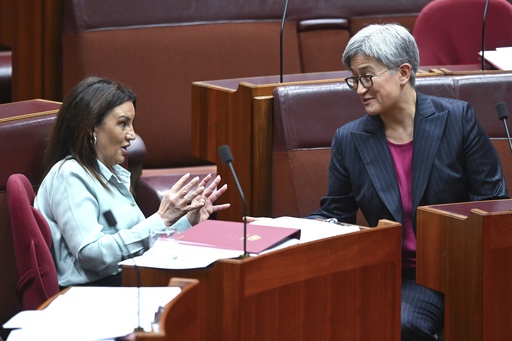
MELBOURNE, Australia — On Thursday, the Australian Senate initiated discussions surrounding a proposed ban on social media access for children under the age of 16, following a strong endorsement from the House of Representatives for this age restriction.
This groundbreaking legislation, which would hold social media platforms like TikTok, Facebook, Snapchat, Reddit, X, and Instagram accountable for failing to prevent young users from creating accounts, could lead to fines as hefty as 50 million Australian dollars (approximately $33 million). The Senate is likely to approve the law during its final session of the year, shortly before upcoming elections expected in the coming months.
With substantial backing from major political parties, the likelihood of the bill becoming law appears high. Nonetheless, numerous child welfare and mental health advocates have voiced concerns regarding potential unintended repercussions.
Senator Jacqui Lambie, who isn’t aligned with any party, expressed her dissatisfaction with the limited time allocated for the Senate’s debate on the issue, labeling the proposal as “undercooked.” She remarked, “Initially, I thought this was a great idea. Many people supported it until we scrutinized the details, which, let’s face it, are lacking.”
The bill achieved a significant majority in the House of Representatives, passing with 102 votes in favor and just 13 against.
If the legislation is ratified, social media platforms would have one year to establish methods for enforcing the new rules before facing penalties.
Representatives of these platforms have raised concerns that the legislation is impractical and have requested that the Senate postpone the vote until at least June of the following year. They argue that this delay would allow time for a government-commissioned study on age verification technologies to yield insights on effectively excluding young children.
Critics contend that the government is seeking to portray a protective image towards parents as the elections approach, hoping that they will favor the ruling party for addressing worries about children’s social media usage. However, some believe the potential consequences of the legislation could be more detrimental than beneficial.
Concerns have been raised that the bill was hastily processed in Parliament without thorough examination, may lack effectiveness, raises privacy issues for all users, and could undermine parents’ authority in making choices for their children.
Opponents of the proposed ban assert that it could lead to the isolation of children, depriving them of the constructive benefits associated with social media. Furthermore, they warn it might push younger users toward the dark web, discourage those under the appropriate age from reporting abuse, and reduce incentives for social media platforms to enhance online safety measures.
